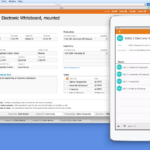The psychology behind making choices shows that we don’t do really well when there are too many options. And when it comes to eCommerce hosting solutions, there are a lot of options.
As Lucinda Honeycutt points out in her article for Entrepreneur.com, all these eCommerce hosts might make it easy to assume that they’re equivalent – and that it won’t matter too much which one you select. But if you only use one criteria to filter through the web hosting crowd, you need to at least consider the speed and reliability you’ll be getting for your online store.
When you can have customers shopping 24/7, even a little trouble with access can translate into notable revenue loss.
The first aspect to consider is speed. How quickly or slowly your eCommerce site loads has a direct impact on user experience. We can all relate to that. You know the feeling of sitting quietly, staring at a buffering circle. It doesn’t take too long before we decide to do something else. Your potential customers are the same. Some of them won’t even hang around for more than two seconds.
Lucinda points out that a one-second delay in load times could add up to a seven-percent cut into your conversion rate. And the consequences for slow web sites are aggravated by the fact that search engines also rank you on speed, so those delays might put your site farther down on the results page. You can directly control some of the speed-related details on your site (e.g. optimized images and coding), but obviously this factor deserves some attention when you’re shopping for an eCommerce host.
The next major factor is uptime – in a given year, how much of the time will your web site host have your site available for customers? Any business owner, whether for a company that’s small, mid-sized, or large, would love to know their online store would be open 100% of the time.
However, most hosting services won’t make that impressive claim. Instead you’re left to choose how many ‘nines’ you want after the decimal place. That might sound like a detail too small to worry about. But the time difference between a site that’s up 99.9% and 99.99% is about 40 minutes per month. Compare that to how long it takes an average user to make a purchase on your site, and you could be losing a number of sales each month.
And again the consequences ripple out from the direct impact. When one customer can’t access your eCommerce store, the difficult experience could easily affect their next purchasing decision, as well as the informal reviews they share with friends and family. The uptime that a hosting service can guarantee is a significant detail for you to consider.
Your company’s growth is going to be ongoing and steady. So you need to plan for what’s going to happen when you go from 100 orders a month to that many per week. If your eCommerce host can’t keep up with the demand from your customers, it could trip up your progress. Switching your entire store to another host is possible, but can be dangerous too. So make your initial decision with the long-term plans in mind.
Lucinda ends her article with some well-deserved attention to the actual costs of a eCommerce hosting solution. The monies needed to set up your store and keep it running all day, all year are a definite concern. Those costs range high and low, and they’re also charged in different ways. Some platforms charge based on bandwidth you use, the number of transactions you complete, or the number of products you advertise. Others assign a flat monthly fee or simply take a percentage of each sale. While this factor may seem like the most direct impact on your decision, keep in mind that some of the features mentioned above actually can have a larger impact over the year.
Use these areas to create your own ranking system and bring a clear order to the wide assortment of eCommerce hosting providers. With due diligence and hard work, you’ll be able to find the solution that will take your company where you want to be.
With integrations offered for some of the most popular eCommerce hosts, aACE 5 establishes a direct connection between your online store and the rest of your business operations tools. Orders started online flow seamlessly into aACE, eliminating duplicate data entry and greatly reducing the risk of human error. Contact us today to learn more about aACE eCommerce integrations.
“I would recommend aACE to any business owner facing the challenging task of integrating their Amazon orders into one solution that handles all of their needs. There isn’t much limitation to what the software can do, and it flows beautifully.” ~ Cory Elliot, Founder and CEO, Troy Filters Ltd.




